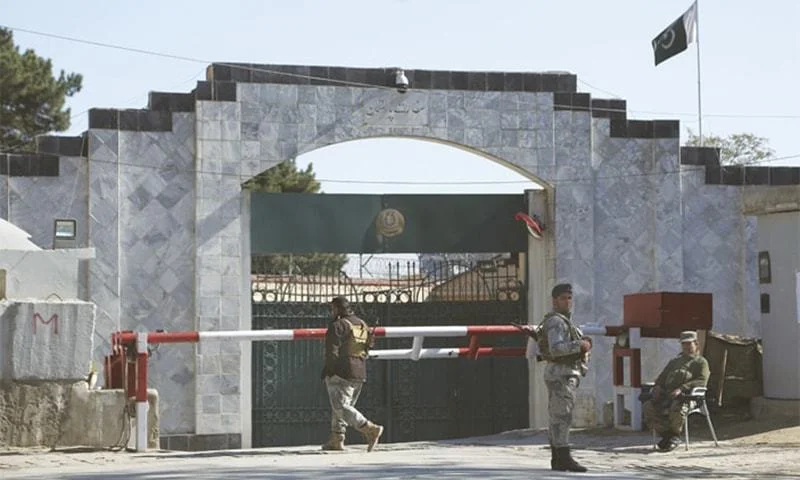In a significant move aimed at strengthening diplomatic ties with Afghanistan, Pakistan has announced its decision to appoint a full ambassador to Kabul, replacing the current chargé d’affaires. This development marks a renewed effort by Islamabad to solidify bilateral relations and address lingering tensions following a period of strained diplomacy and security concerns.
The announcement was made by Pakistan’s Deputy Prime Minister and Foreign Minister, Senator Ishaq Dar, during a recent press briefing. He emphasized that the decision to send a permanent ambassador to Afghanistan reflects Pakistan’s commitment to maintaining a stable and constructive relationship with its western neighbor. According to Dar, this diplomatic upgrade is a step toward fostering more structured and effective dialogue between the two countries on a range of bilateral issues.
Background: From Chargéd Affaires to Full Ambassador
Pakistan has maintained only a chargé d’affaires in Kabul since the Taliban took over Afghanistan in August 2021. The diplomatic mission was led by Obaid-ur-Rehman Nizamani, who served in the role of acting head of mission. However, the relationship between the two countries has remained complex and, at times, fraught with challenges.
A major turning point came on December 2, 2022, when Nizamani survived an assassination attempt in Kabul. An armed attack on the Pakistani embassy compound left one security guard critically injured. Following the attack, Nizamani was recalled to Islamabad for consultations, and although he later returned to Kabul, the incident exposed the fragile nature of security for diplomatic personnel in Afghanistan.
Despite the challenges, Pakistan has continued its engagement with the Afghan interim government, often under contentious circumstances. Cross-border tensions, security threats, and the issue of Tehrik-i-Taliban Pakistan (TTP) presence in Afghanistan have frequently strained relations. Nevertheless, Pakistan has repeatedly expressed a willingness to work with Kabul on matters of mutual interest, including trade, border management, and regional stability.
Strategic and Diplomatic Significance
Appointing a full ambassador is more than a symbolic gesture—it carries strategic weight. A permanent ambassador brings diplomatic continuity, enhanced negotiation capacity, and the ability to engage in deeper policy discussions. This move could provide Islamabad with more leverage in addressing critical issues, such as cross-border terrorism, refugee management, and regional economic cooperation.
For Afghanistan, the decision is likely to be viewed positively, signaling that Pakistan is willing to re-engage at a higher diplomatic level. The Taliban-led interim government, which has not yet been formally recognized by most of the international community, often sees recognition and full diplomatic relations as a form of legitimacy. Pakistan’s move could be interpreted as a tacit endorsement of the need to engage the Taliban government, if not outright recognition.
Domestic and Regional Reactions
Within Pakistan, the decision has garnered mixed reactions. Some analysts have welcomed it as a necessary step to protect Pakistan’s strategic interests and to ensure direct communication channels remain open. Others, however, have expressed concern about the security risks still prevalent in Afghanistan, particularly for diplomatic staff.
Regionally, this development may also influence other neighboring countries’ diplomatic approaches to Afghanistan. While China, Russia, Iran, and several Central Asian states maintain embassies in Kabul, most have avoided appointing full ambassadors. Pakistan’s move could signal a shift that prompts others to reconsider their level of diplomatic engagement with the Taliban administration.
The Road Ahead
It remains to be seen who will be appointed as the new ambassador, but the choice will likely reflect Pakistan’s broader strategic vision for its role in Afghanistan. The new ambassador will face a complex landscape—balancing national security concerns with the imperative of regional cooperation. Issues such as the repatriation of Afghan refugees, counterterrorism coordination, and economic connectivity projects like the CASA-1000 power project and the Pakistan-Afghanistan Transit Trade Agreement (APTTA) will be central to the diplomatic agenda.
Moreover, the ambassador will have to navigate Afghanistan’s evolving internal dynamics, including the humanitarian crisis, women’s rights concerns, and the Taliban’s attempts at international outreach. Maintaining open channels of communication and fostering trust will be essential to achieving any meaningful diplomatic progress.
Conclusion
Pakistan’s decision to appoint a full ambassador to Kabul is a pivotal moment in the countries’ bilateral relationship. It underscores Islamabad’s intent to take a proactive approach to diplomacy with Afghanistan, despite the security risks and political complexities involved. As regional dynamics continue to shift, this move may pave the way for broader engagement—not just between Pakistan and Afghanistan, but among other regional stakeholders seeking stability and cooperation in a historically volatile part of the world.
Reference: کابل میں ناظم الامور کی بجائے سفیر متعین کرنے کا فیصلہ:نائب وزیراعظم









